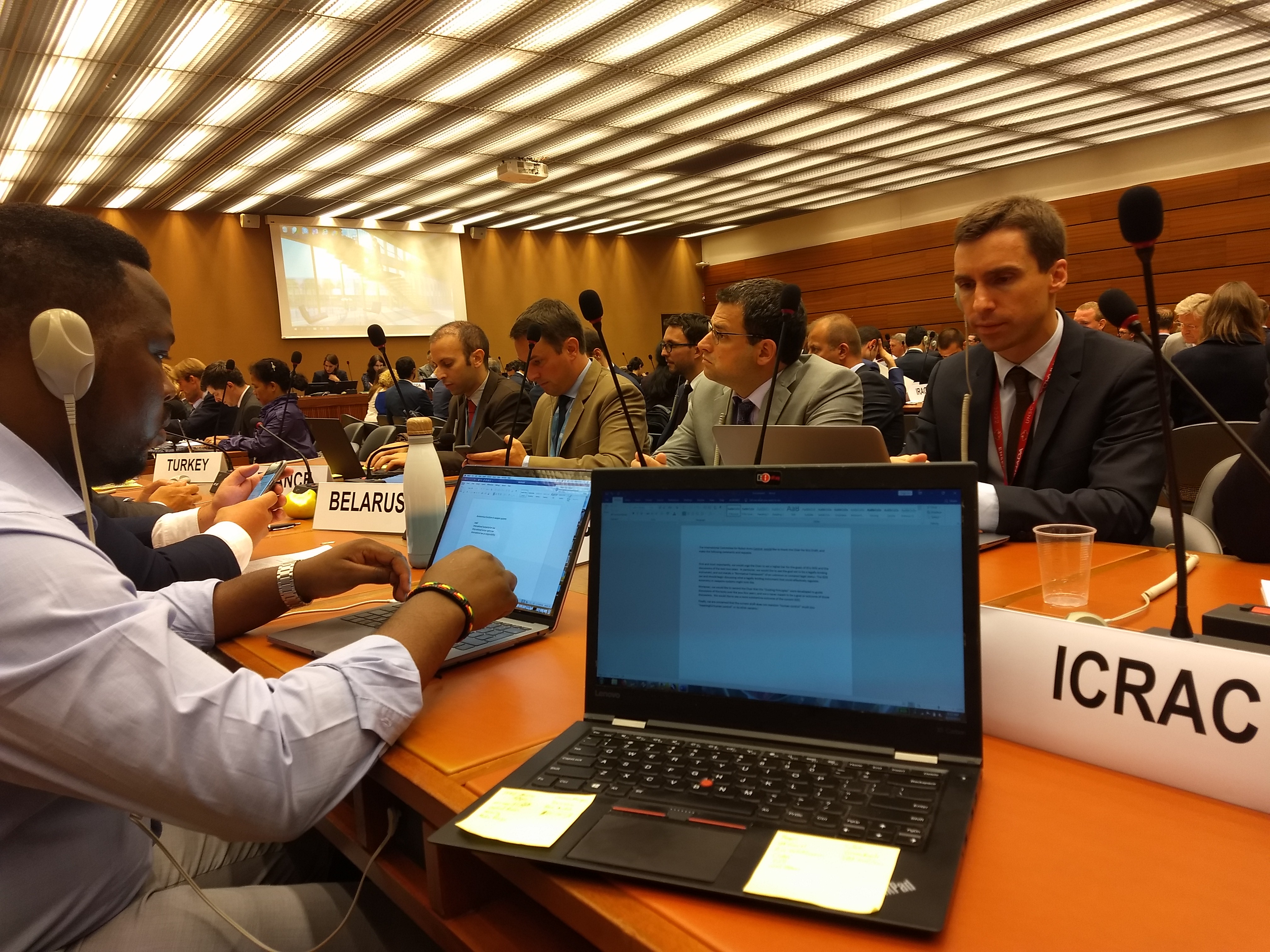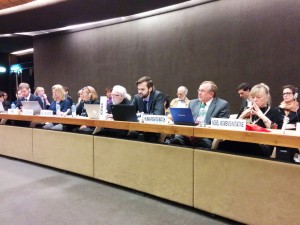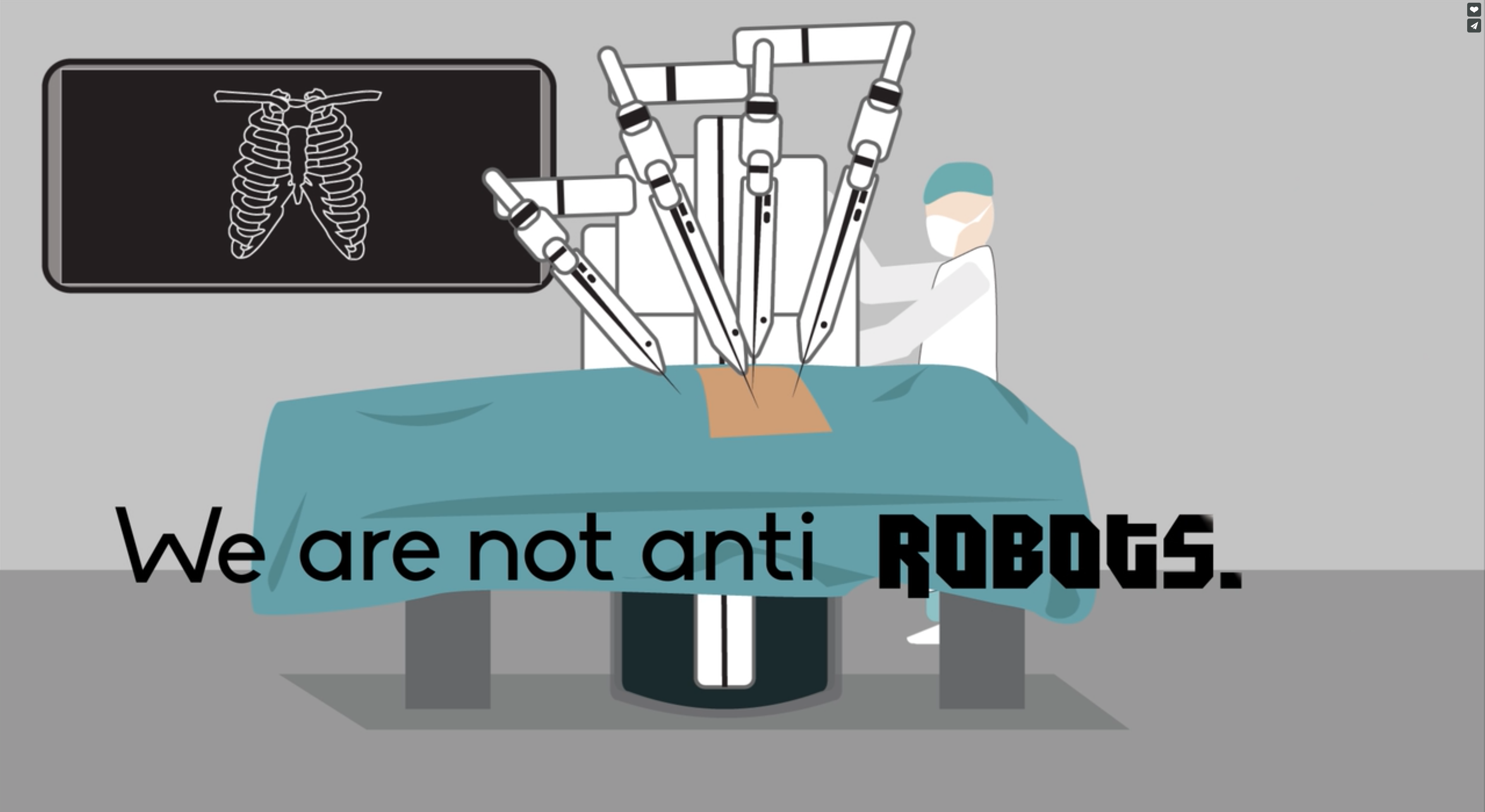Statement delivered by ICRAC Vice-chair Peter Asaro to the CCW GGE Informal Session on the Chair’s Non-Paper, August 19, 2019. “The International Committee for Robot Arms Control, which is a member of the Campaign to Stop Killer Robots, would like to thank the Chair for this Draft, and make the following comments and requests. First […] Continue Reading
Archive | News

ICRAC Statement at Informal Consultations of the August 2019 CCW GGE on LAWS
Posted on 20 August 2019 by Peter Asaro

ICRAC statement on the human control of weapons systems at the April 2018 CCW GGE
Posted on 11 April 2018 by nsharkey
International Committee for Robot Arms Control Statement to the UN GGE Meeting 2018 Delivered by Prof. Noel Sharkey, on 11 April 2018 Mr Chairperson, We have been very pleased with this morning’s session as states begin to contemplate a move towards policies on the human control of weapons systems. On a pedantic note: we cannot […] Continue Reading

ICRAC Working Paper #3 (CCW GGE April 2018): Guidelines for the human control of weapons systems
Posted on 10 April 2018 by nsharkey
Guidelines for the human control of weapons systems [PDF] Authored by Noel Sharkey, chair of ICRAC[1] Since 2014, high contracting parties to the CCW have expressed interest and concern about the meaningful human control of weapons systems. There is an extensive scientific and engineering literature on the dynamics of human-machine interaction and human supervisory control […] Continue Reading

Short ICRAC Statement at the April 2018 CCW GGE
Posted on 10 April 2018 by nsharkey
International Committee for Robot Arms Control Statement to the UN GGE Meeting 2018 Delivered by Prof. Noel Sharkey, on 10 April 2018 Mr. Chairperson, There have been very useful and interesting discussions this morning. I speak here as chair of an academic NGO: the International Committee for Robot Arms Control (ICRAC) and as a member […] Continue Reading

ICRAC Statement at the April 2018 CCW GGE
Posted on 09 April 2018 by Peter Asaro
International Committee for Robot Arms Control Statement to the UN GGE Meeting 2018 Delivered by Dr Thompson Chengeta, on 9 April 2018 Mr. Chairperson, I speak on behalf of the International Committee for Robot Arms Control [ICRAC], a founding member of the Campaign to Stop Killer Robots. Ambassador Gill, we thank you for your important […] Continue Reading
![2015-04-14-10.16.53-1024×768[1] 2015-04-14-10.16.53-1024x768[1]](https://i0.wp.com/www.icrac.net/wp-content/uploads/2018/04/2015-04-14-10.16.53-1024x7681.jpg?fit=1024%2C768&ssl=1)
Unpriming the pump: Remystifications of AI at the UN’s Convention on Certain Conventional Weapons
Posted on 08 April 2018 by Lucy Suchman
*Originally published on the “Robot Futures Blog” In the lead up to the next meeting of the CCW’s Group of Governmental Experts at the United Nations April 9-13th in Geneva, the UN’s Institute for Disarmament Research has issued a briefing paper titled The Weaponization of Increasingly Autonomous Technologies: Artificial Intelligence. Designated a primer for CCW […] Continue Reading

Frequently Asked Questions on LAWS
Posted on 11 November 2017 by Frank Sauer
Memorandum for delegates at the Convention on Certain Conventional Weapons (CCW) Group of Governmental Experts (GGE) Meeting on Lethal Autonomous Weapons Systems (LAWS) Geneva, 13-17 November 2017 ICRAC is an international not-for-profit association of scientists, technologists, lawyers and policy experts committed to the peaceful use of robotics and the regulation of robot weapons. Please visit our […] Continue Reading
ICRAC and the responsible robotics revolution
Posted on 28 January 2016 by Frank Sauer
ICRAC works for the regulation of robotic weapon systems and is committed to the peaceful use of robotic technology. To further pursue this latter goal, ICRAC’s Noel Sharkey co-founded the Foundation for Responsible Robotics. In a recently published piece on Research Fortnight, Sharkey and Aimee van Wynsberghe write: The robotics revolution will have a disruptive […] Continue Reading

ICRAC Video: Peaceful Uses of Robotics and Banning LAWS
Posted on 12 November 2015 by Peter Asaro
Stop the Killer Robots from Kamille Rodriguez on Vimeo. The video explains that a ban on killer robots would not have negative impacts on the development of other robotics applications and research. It was created for ICRAC by digital animation artist Kamille Rodriguez: http://www.kamillerodriguez.com/ Continue Reading

Icelandic research institute shuns autonomous weapons
Posted on 02 September 2015 by nsharkey
The Icelandic Institute for Intelligent Machines (IIIM) has issued an ethical policy that makes them the first Artificial Intelligence research and development group to reject the development of technologies intended for military operations. IIIM is an independent research institute affiliated with Reykjavik University in Reykjavik, Iceland “It is only fitting that a research center in Iceland […] Continue Reading






